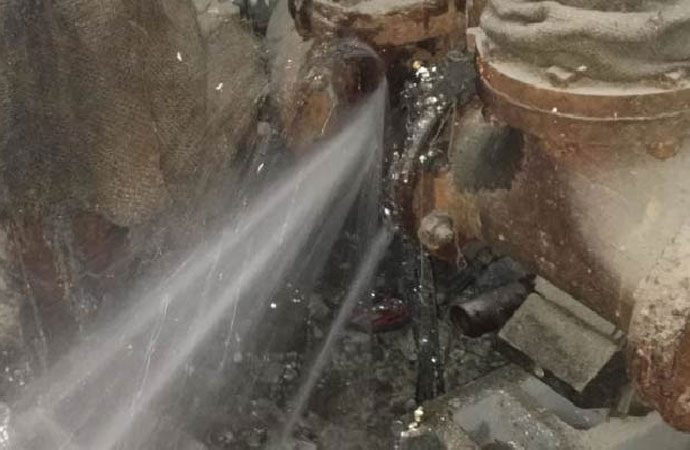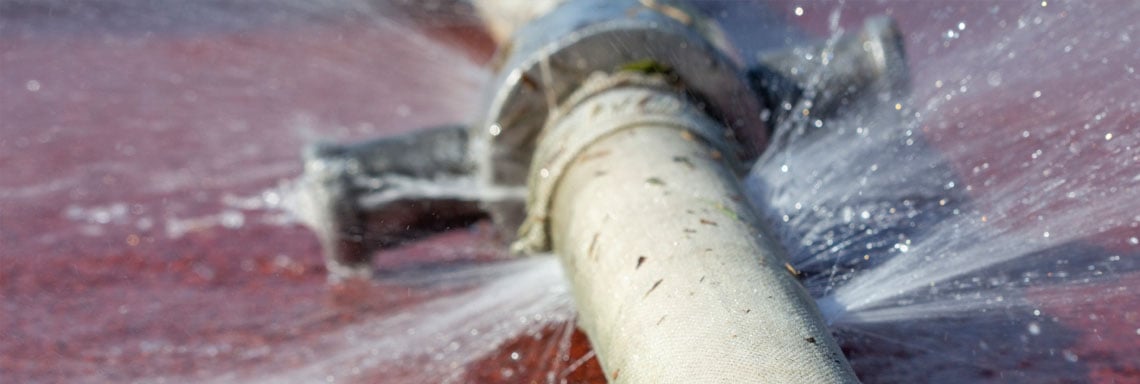Quick-Response Plumbing: Tips for Identifying and Dealing With Burst Pipes
Quick-Response Plumbing: Tips for Identifying and Dealing With Burst Pipes
Blog Article
What are your thoughts concerning How to install a dishwasher safely?

A ruptured pipeline is a major emergency; you can only stand as you enjoy water you pay a lot to reunite with the earth. In worse instances, you see a pool on your kitchen area floor, which is an excellent journey hazard, especially if you have kids around. If the pipeline that ruptured remained in your walls, bad news: you may need to paint that whole area.
Just how can a calamity like a burst pipe be avoided as well as handled? Well, by paying attention to your specialist emergency plumbing professionals and following these guidelines.
Exactly how do I understand when my pipelines have ruptured?
Changing water stress
Pipelines do not simply burst in a day. You might have observed that your kitchen area tap or shower doesn't run instantly when you turn the tap. It might stop for a couple of seconds and then blast you with more force than normal.
In various other instances, the water might appear typical initially, then drop in pressure after a few seconds.
Wet wall surfaces and also water discolorations
Prior to a pipe bursts, it will leak, many times. If this consistent leaking goes unnoticed, the leak may graduate into a large tear in your pipeline. One easy way to avoid this emergency is to look out for wet walls ad water stains. These water stains will lead you right to the leak.
Puddles under pipelines and also sinks
When a pipeline ruptureds, the discharge develops a puddle. It might show up that the pool is growing in size, and also despite the number of times you mop the pool, in a couple of minutes, there's an additional one waiting to be cleansed. Commonly, you might not be able to trace the puddle to any noticeable pipelines. This is an indication to call an expert plumber.
Untraceable dripping noises
Pipeline ruptureds can happen in the most undesirable locations, like within concrete, inside walls, or under sinks. When your house goes quiet, you may have the ability to listen to an annoyingly persistent trickling noise. Also after you've checked your shower head as well as kitchen tap, the trickling may proceed.
Precious visitor, the dripping might be originating from a pipe inside your wall surfaces. There isn't much you can do regarding that, except inform a professional plumber.
Shut down the Water
When water freezes, it increases in volume by concerning 9 percent. As well as it expands with significant force: The stress inside pipes might go from 40 pounds per square inch to 40,000 psi! No pipe can hold that much stress, so it breaks open. The break may take place where the ice types, but regularly, it happens where water pressure locates a vulnerable point in the pipeline. That may be inches or perhaps feet from the frozen location. Find the water shutoff valve and also turn off the water to stop more damages. You might likewise need to turn off the power as well, relying on where the leaks takes place and just how big it is.
Polluted water
Many people presume a burst pipeline is a one-way outlet. Rather the contrary. As water flows out of the hole or laceration in your plumbing system, impurities find their method.
Your water might be polluted from the resource, so if you can, check if your water storage tank has any kind of problems. Nevertheless, if your alcohol consumption water is supplied as well as cleansed by the local government, you ought to call your plumber quickly if you see or smell anything amusing in your water.
What do I do when I spot a ruptured pipeline?
Your water meter will remain to run even while your water wastes. To lessen your losses, locate the main controls as well as transform the supply off. The water pipe are an above-ground structure at the edge of your residential property.
How to Fix & Detect a Leaking Pipe
How Do I Know if a Pipe is Leaking?
Leak detection tests can help you determine if your pipe has a leak. Even if you don’t see an apparent leak, you should still conduct leak detection tests regularly to save water and money—and prevent major damage to your home.
Water meter. It can be helpful to figure out what your usual water meter usage numbers are and then monitor them regularly. To monitor your meter, first, turn off all water faucets in your home. Check the meter and write down the numbers. In a few hours, check the meter again. If the numbers have changed, you have a leak. Water gauge. Use a water gauge to test your water pressure. Your showerhead should produce a certain amount of water pressure based on its model and design. If the pressure is lower than it is supposed to be for that specific showerhead, your home likely has a leak. Puddles. Look inside your bathroom, laundry, and kitchen sink cabinets. Puddles around the cabinets or around toilets, tubs, showers, and washing machines indicate the presence of a leaking pipe. You may also notice loose tiles, peeling or flaking paint, or mold caused by water accumulation. Napkin test. Even if you don’t see any puddles, you may still have a leak. You can test for water leaks in the bathroom, laundry, and kitchen by wiping below-sink connections with a napkin, paper towel, or piece of toilet paper. If it becomes damp, you probably have a leaking pipe under the sink. Discolored walls. Walls that are discolored—usually with brown or yellow stains—or bulging might mean that they have been impacted by water damage caused by a leaking pipe. Smell. A leaky pipe will create sitting water, and over time, that water may develop a musty smell. If your home smells musty, but you can’t locate the source, it may be due to a leak. Steps for Fixing a Leaking Pipe
A leaky drain can be remedied by tightening the pipe base, replacing the drain seal, caulking the rim, and tightening the pipe nut. Similarly, a leaking toilet pipe can be treated by tightening the packing nut. You may also need to replace the valve. A leaky faucet may just need tightening or replacement of the washers. If that doesn’t work, consider replacing your faucet. If your pipe has a hole in it, you may want to use a pipe leak sealer or pipe leak tape. This quick fix for water pipe leaks can also temporarily fix a copper pipe leak. https://www.ahs.com/home-matters/quick-tips/how-to-tell-if-pipes-are-leaking/

I recently found that blog posting about What to Know Before Installing a Dishwasher while doing a lookup on the web. Do you know somebody else who is excited by the topic? Take a moment to share it. Thanks a bunch for your time. Come back soon.
Book Now
Report this page